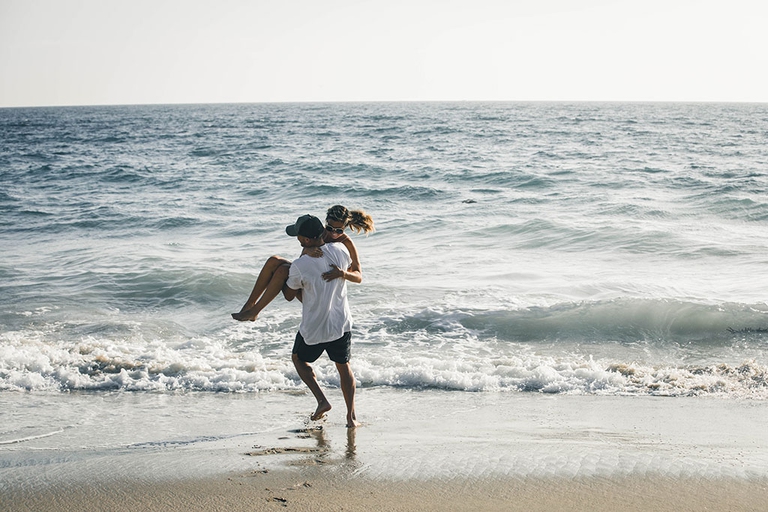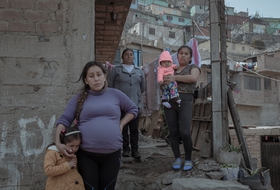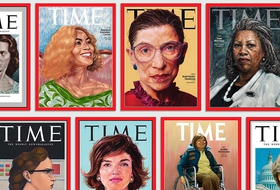
One in three women have suffered physical or sexual violence. With contributions from Europe, Africa, Asia and Latin America, we look at how this shadow pandemic affects every corner of the world.
A relatively unknown crusade lies behind many attacks, the “ISIS for ugly people”: but it has nothing to do with Islamic extremism. Who are Incels, and why do they hate women?
In 2009, George Sodini killed 3 young women in Pennsylvania, claiming that “thirty million women rejected me” over the course of his life. In February 2018, 19-year-old Nikolas Cruz shot 17 students in a high school in Parkland, Florida, from which he had been expelled. Before the murder, he allegedly physically abused his ex-girlfriend after threatening her new boyfriend.
More than 30 per cent of the mass shootings in the world take place in the United States. When analysed individually, we can discern that Incels, often, are the perpetrators. This term was coined in 1997 by a 25-year-old Canadian woman called Alana who felt discriminated against because she was still a virgin, but she certainly had no ill intentions; it derives from the union of the words involuntary and celibate. Today, many men who desire a romantic relationship but can’t find a partner, and blame women for this, identify with this term.
Many members of the Incel community are convinced that women choose their partners according to three parameters: looks, money and status. According to this theory, named LMS, Chads are men who score positively in all three categories; they’re good looking, wealthy and popular. Stacys are “hot” girls that ugly men hopelessly desire and who choose to only have sexual relations with Chads. Red pillers are those who have metaphorically chosen the red pill, like Neo in the Matrix, and are therefore able to see the “truth”.
According to evolutionary psychology, females seek partners who can provide for their offspring, whilst men prefer younger and more fertile women. Furthermore, “since members of both sexes work nowadays, economic status is prioritised when making important life choices,” explains doctor Giorgia Lauro, a psychologist with a Master’s degree in clinical sexology from the Italian Institute of Scientific Sexology (IISS).
With the advent of the internet, mere theories have bene translated into practice: online forums have defined the nebulous frameworks of the Incel movement. The web has given many people who feel socially excluded a way to satisfy their sense of belonging, as well as the urge to vent their feelings. “The pain we feel when we’re left out is comparable to that of a wound, scientifically speaking,” Lauro explains. Often, in order to feel accepted we conform to “other people’s ideas, which can be more or less extreme. When individual responsibility is combined with group identity, people tend to dehumanise the other, becoming more aggressive”.
Nevertheless, we aren’t robots and love isn’t an equation. We don’t choose to be with someone the way we’re attracted to low cost, high performance smartphones. We fall in love because the other person’s presence improves our lives. “We can’t attribute the selection of a partner to a mere theory, since the complexity of relational encounters with others is determined by a subjective process that can’t be relegated to the rational dimension,” Lauro confirms.
Unfortunately, we hardly ever get to see the face or hear the voice of those we interact with on the internet, nor can we know their story or feelings, therefore we lose the sense that we’re communicating with another human being and feel entitled to alter the way we express ourselves, and become more ruthless. The doctor concludes by saying that we’re “more prone to exercise amoral behaviours” when other members of the group do so too.
The Incel movement often transforms into a violent crusade or, “ISIS for ugly people” as a member of the group referred to it during an episode of the Italian TV show Nemo – Nessuno Escluso; but these attacks have nothing to do with Islamic extremism.
In April 2018, 25-year-old Alek Minassian ran over pedestrians in the streets of Toronto, killing ten people. Before carrying out the massacre he posted a message on Facebook: “The Incel Rebellion has already begun, we will overthrow Chads and Stacys! All hail the supreme gentleman Elliot Rodger!” Four years earlier, Rodger had murdered six people after writing a 141-page long manifesto and published videos in which he admonished women: “The females of the human species have never wanted to mate with me … It is my purpose to punish them all”.
The Toronto attack left no doubts and marked the moment in which involuntary celibates entered the limelight.
Incels often can’t stand their imperfections, but instead of admitting this, they prefer blaming others, a behaviour typical of those who don’t accept themselves. Therefore, they accuse others of hating them, specifically holding women responsible of taking away their leadership role, of being independent and no longer needing men. “Since men have held power on various levels – sexual, political, technological, familial – for centuries, the loss of this status determines a state of anxiety and uneasiness,” doctor Lauro explains.
A man cited his virginity as reason he planned to kill “as many girls” as he could, police say https://t.co/c2mC3AhVqi
— The Washington Post (@washingtonpost) 22 gennaio 2019
Helping these people is no easy task. Even if we despise the sin, we must try to “understand the story behind the sinner”, who, like a wounded and defensive animal, must regain confidence in themselves, the people around them and stop fearing they might get hurt, in order to free their mind from aggressiveness. To do this, they need people who can help them along this journey: families and teachers (or educational figures more generally).
“The only way to eradicate sexual discrimination is through education aimed at gender equality, promoting the idea that the rights earned by women aren’t a threat or something that must generate fear and hate, but simply a normal socio-cultural progress,” the psychologist states. Women don’t want to take power away from men: they want to fulfil their dreams just like everybody else, including men.
In 2013, the European Parliament approved the Resolution on eliminating gender stereotypes in the European Union, in which member states were asked to evaluate school programmes functional to this purpose; currently, in countries like Italy, such activities are mostly offered by NGOs and private bodies rather than public institutions.
Nevertheless, teenagers absorb a lot of information through social media. On the one hand, the risk of coming across misogynist content is very high. On the other, such platforms are also animated by positive debates, for example one that kicked off in 2017: since then, millions of women around the world have shared experiences of sexual violence and harassment through the #MeToo hashtag.
Read more: #MeToo campaign’s silence breakers, who spoke out against sexual violence, are Time Person of the Year 2017
In Italy, Matteo Camiciottoli, mayor of Pontivrea, in the province of Savona, was fined 20,000 euros (with a suspended penalty subject to the payment being made within a month) because he said that the rapists who targeted two girls on the beach in Rimini should “be sent to Boldrini’s house for house arrest, they might put a smile on her face”, referring to former President of the Chamber of Deputies, Laura Boldrini.
Men’s razors company Gillette, who objectified and belittled women for years, launched a commercial condemning toxic masculinity that went viral in 2019.
When we’re in love, we become irrational. We smile for no apparent reason, we sing under the shower, romantic movies seem less frivolous. We’re late for work just to make breakfast for the person we love. And that person probably made their way into our lives unexpectedly: we weren’t looking for them, they aren’t what we imagined, yet they’re perfect.
Incels don’t understand this. It’s not that the perfect woman doesn’t want them, it’s that the perfect woman – like the perfect man – doesn’t exist. They’ll be free only once they can open themselves to the wonderful imperfection of life.
Siamo anche su WhatsApp. Segui il canale ufficiale LifeGate per restare aggiornata, aggiornato sulle ultime notizie e sulle nostre attività.
![]()
Quest'opera è distribuita con Licenza Creative Commons Attribuzione - Non commerciale - Non opere derivate 4.0 Internazionale.
One in three women have suffered physical or sexual violence. With contributions from Europe, Africa, Asia and Latin America, we look at how this shadow pandemic affects every corner of the world.
The Istanbul Convention against gender-based and domestic violence marks its tenth anniversary. We look at what it is, who its signatories are, and what the future might hold.
European Commission President Ursula von der Leyen reminded us of the gravity of violence against women around the world, and of the Istanbul Convention’s utmost importance.
President Erdoğan has pulled Turkey out of the Istanbul Convention, key in the fight against gender violence, claiming that it favours the LGBT community rather than family values.
Violence against women in Peru has increased as a result of Covid-19 lockdowns. 14,912 people were reported missing from January to November 2020, more than half of them minors and 64 per cent women. People have been confined to their homes for months, many forced to endure poor physical, economic and social conditions. A situation that
Joys Estefani Qqueccaño Huamani, 24, disappeared from her rural community in Peru on 9 October. Her family began looking for her independently of the authorities and despite the resistance of relatives of Joys Estefani’s ex-partner Arturo Ccana Condori, 32, charged with committing violence against her on 28 September, eleven days before Joys Estefani disappeared. Photos
Costa Rica celebrated its first same-sex marriage when two women, Alexandra Quiros and Dunia Araya, celebrated their wedding: an “extraordinary moment”.
The pandemic and its restrictions are affecting everyone, without exceptions. However factors like housing, income inequalities, gender, access to technology and working conditions are influencing how people experience the health crisis.
Time magazine’s 100 Women of the Year project sheds light on influential women’s stories, from Amelia Earhart to Greta Thunberg. A selection of some of the greats for International Women’s Day.










